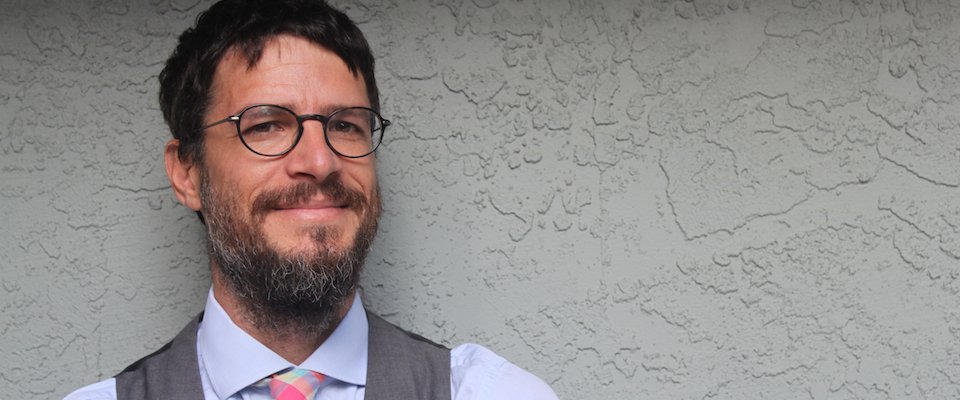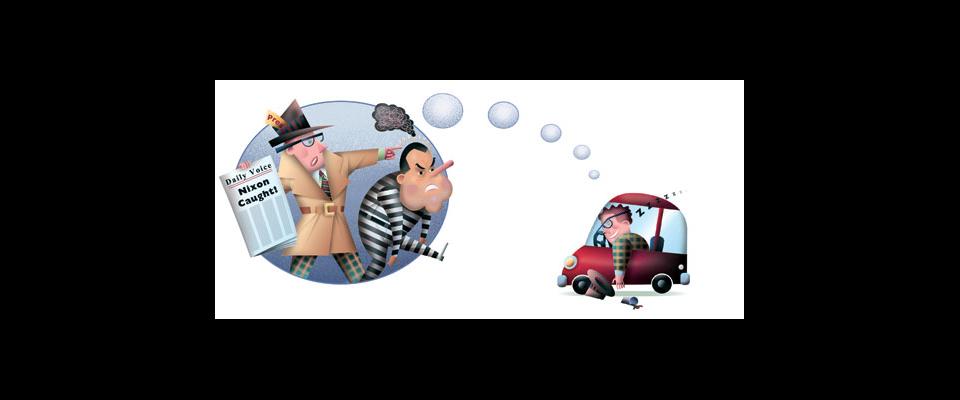For a journalist it seemed the ultimate dream gig: working for the Great Gray Lady herself, the New York Times—but operating from a lovely California beach town, not the dreary main newsroom in Manhattan. And indeed, Mike McPhate appreciated his position as producer of the Times’ newsletter, California Today. He had, after all, paid his dues. After taking his Master’s in journalism at Cal, he banged around South Asia as a freelance, worked as assistant night editor at the New York Sun, reported and edited for the Washington Post, then bounced to the Times as the homepage editor.
“I did that for a few years, then moved on to the express desk, working as a reporter and editor on the social media rapid response team,” says McPhate. “Then the California Today job flew in 2016. They wanted someone who was comfortable with digital technology and who could also write a story. I raised my hand.”
So McPhate, who was raised in Orange County, moved back to his natal soil. And he was happy. As noted, he was able to live in the bucolic community of Los Osos south of Morro Bay, and his new gig put a lot of eyes on his work, both as a reporter and aggregator. McPhate wrote stories about our wondrous and sprawling state, but he also gleaned and posted pieces from a wide range of sources. For the Times’ readers who wanted to see what the hell was up with California on any given day, McPhate was the filter.
They’re now going head-to-head with McPhate’s old employer, serving as the doughty upstart to America’s most influential legacy newspaper.
But some aspects of the job weren’t so dreamy. McPhate had to report and write two stories daily, along with curating all the aggregated material. Sure, it was nice to know the brown pelicans were flying around the local beaches and the horseneck clams were thriving in the Morro Bay mudflats, but you can’t enjoy such natural splendor when chained to your computer for more than eight hours a day, five days a week. Plus, McPhate and his wife had two little kids, and he sometimes worried about being an absent dad even though he spent most of his time in the house.
“Plus I always had an entrepreneurial streak,” said McPhate. “I noticed all these newsletters were popping up, and some seemed to be doing extremely well. The Skimm is a good example. It was started a few years by two NBC producers [Danielle Weisberg and Carly Zakin], and provides a conversational roundup of the news. Today, it has several million paid subscribers, and it’s a real media powerhouse.”
And then there’s the Hustle, a Bay Area Millennial-skewed newsletter dedicated to tech and business, says McPhate—not to mention NextDraft, founded by Cal grad Dave Pell, and What the F**k Just Happened Today?
“That’s a site dedicated to all things Trump that was started by a guy [Matt Kiser] on a lark,” says McPhate. “Before he knew it, he had a hundred thousand sign-ups. I just started thinking, yeah, California could use something similar. So last year I quit the Times.”
McPhate and his partner, editor Andrew Zahler, launched their own California newsletter, the Golden Stater, shortly after Thanksgiving. It quickly developed that someone else owned that name, however, so they re-christened the site the California Sun. In any case, they’re now going head-to-head with McPhate’s old employer, serving as the doughty upstart to America’s most influential legacy newspaper. So how’s it going?
“Pretty good,” McPhate says. “We were hoping for 10,000 signups by April, and we have 12,000. And we’re still growing at a healthy pace.”
Mere eyeballs, of course, aren’t enough to sustain an online newsletter. Those orbs have to be monetized somehow. Different websites have different strategies, of course: McPhate cites advertising, donation drives a la NPR, premium plans for extra gimmees, and of course, swapping data for dollars.
People are overwhelmed by the cacophony of news on social media. There’s a need for trusted guides to help people negotiate the morass.”
“We’re definitely not going to sell data,” McPhate says. “We originally planned to charge outright, but we were talked out of it. But now we’re planning to launch a membership model sometime in the next few months. And we’re partnering with an East Coast web design shop that helps start-ups punch above their weight. They’re going to be taking over all the stuff I’m not particularly good at—web design, the mechanics of running a digital operation, business strategy – so I can concentrate on reporting and curating. They talk and I basically listen, nod and say, yeah, that sounds good.”
McPhate is working as hard on the California Sun as he did on California Today, spending half of each long day reporting and writing and the remainder searching about 80 websites and scouring social media for tidbits. It doesn’t feel as onerous as his years in the media salt mines, of course. The California Sun is his baby.
“We see ourselves as the place you go to get those juicy little kernels about California that you’re either not going to see anywhere else or find on your own,” McPhate says.
Much has been bloviated about the death of content and the rise of aggregation, all to the general detriment of the citizenry and the republic. McPhate says he’s as distressed about the decline of original journalism as anyone.
“I agree that the decimation of American newspapers is a great tragedy,” he says. “I’m as broken-hearted as anyone else. But at the same time, aggregation is a service that has become necessary in the digital age. People are overwhelmed by the cacophony of news on social media. There’s a need for trusted guides to help people negotiate the morass. We see ourselves as one of those guides, highlighting good and interesting journalism about a large, complex and fascinating region.”
Still—the Times represented a safe berth. Or as safe a berth as exists in journalism, at any rate. Any regrets about jumping ship?
“Not really,” McPhate says, “but then, my wife is a nurse practitioner. This wouldn’t have been an option without her support and paycheck. She made it possible.”





















